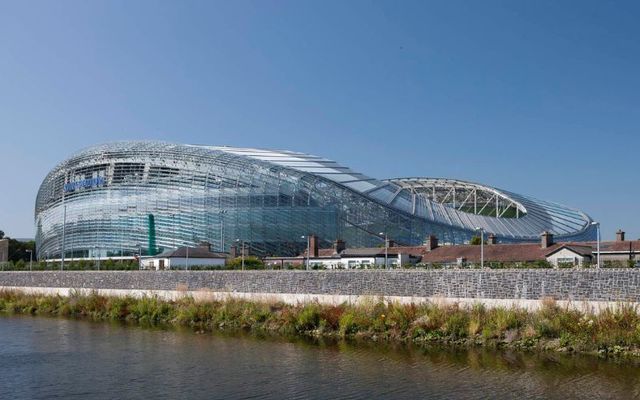Ireland, England, Scotland, Wales, and Northern Ireland will co-host the UEFA EURO 2028 Championships, UEFA announced today, Tuesday, October 10.
"This is a milestone day for UK and Ireland sport," the UK & Ireland 2028 Bid Partnership said on Tuesday.
"Together, as a pioneering partnership between our Football Associations with full Government support, we are delighted to be appointed hosts of UEFA EURO 2028.
"The tournament will be a celebration of football and we can’t wait to welcome Europe and the rest of the world to our host cities.
"Our vision is to develop football, increase participation, and grow a more diverse and inclusive game.
"We promise to stage an innovative and sustainable tournament that is also the most accessible EURO ever – with a record-breaking three million tickets for fans.
"UEFA EURO 2028 across the UK and Ireland will also help to drive forward positive social impact, helping communities thrive by creating economic and social legacies."
????????? | ??????? & ?? ???? ???? ???? ???? ???? ??
Confirmed venues: ??????, Belfast, Birmingham, Cardiff, Glasgow, Liverpool, London (x2) Manchester and Newcastle ? pic.twitter.com/uTjVzB5mhF
— Ireland Football ⚽️?? (@IrelandFootball) October 10, 2023
Dublin's Aviva Stadium and Belfast's yet-to-be-completed Casement Park are among the confirmed venues for UEFA EURO 2028 alongside Wembley Stadium in London, National Stadium of Wales in Cardiff, Tottenham Hotspur Stadium in London, City of Manchester Stadium in Manchester, Everton Stadium in Liverpool, St James' Park in Newcastle, Villa Park in Birmingham, and Hampden Park in Glasgow.
Ireland and the UK's joint bid to host UEFA EURO 2028 went unopposed after Turkey withdrew its bid last week to focus on its own co-hosting bid with Italy for EURO 2032, which was also confirmed on Tuesday.
Ireland's Department of Tourism, Culture, Arts, Gaeltacht, Sport and Media noted on Tuesday that the UEFA EURO 2028 Championships will be "the largest sporting event we have ever jointly staged" as well as "the largest single international sporting event held in Ireland."
Taoiseach Leo Varadkar said he was "over the moon" to hear that Ireland and the UK will co-host the tournament.
"It will be the biggest event ever hosted by our two islands working together," he said on Tuesday.
"We’re willing to invest in the Aviva Stadium and Casement Park to ensure that the stadia, north and south, are ready to welcome the world.
"I also want to ensure that there are benefits too for football clubs all over the country and I look forward to engaging with the FAI on how we can achieve that.
"Football truly is a global sport, played on every continent and is transcendent of race, social class or gender. I really think we can use this tournament to showcase Ireland to the world and bring people together."
Also welcoming the news, Minister Catherine Martin said: "Hosting the tournament will bring huge benefits to the country economically, particularly for our tourism industry, with over 120,000 visitors expected to travel to Ireland for the tournament.
"The sporting benefits will be felt right across the island, inspiring a new generation to take up football and other sports.
"UEFA Euro 2028 has the potential to encourage increased participation from all sections and communities of our society and to reflect the goals of the bid to deliver football for all, football for good and football for the future."
In Northern Ireland, Michelle O'Neill, the First Minister Designate, also welcomed the news:
⚽️ CONFIRMED - CASEMENT PARK WILL HOST EURO 2028 GAMES! ⚽️
UEFA has confirmed the joint bid between Ireland and Britain for the 2028 European Championships has been successful, with Casement Park being one of the host stadiums for the games.
This is an incredible opportunity of… pic.twitter.com/TNB1Sax29Y
— Michelle O’Neill (@moneillsf) October 10, 2023
Announcing the joint final bid back in April, the Football Association of Ireland predicted that UEFA EURO 2028 will generate cumulative socio-economic benefits of up to €3 billion for the five nations, €241 million of which will be generated in Ireland.




Comments